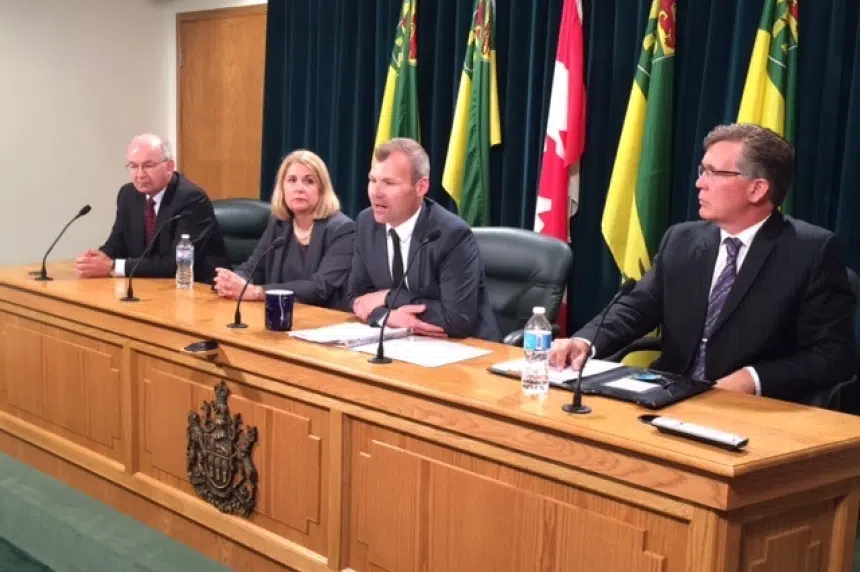The way Saskatchewan’s health care system is structured is likely to change.
Health Minister Dustin Duncan announced a three-member advisory panel will review the province’s 12 regional health authorities (RHAs), their boundaries and their boards, to find ways at potentially reducing their sizes.
“This group will review the current structure of regional health authorities and provide their advice on a structure that does have fewer health regions,” Duncan explained.
Athabasca could be counted as the 13th RHA, although it is a shared venture with the federal government.
The Wall government first hinted at what it is calling “transformational changes” in the budget. Shortly after that, the province indicated its intent was to have one special commissioner appointed to look at ways of delivering health care in more efficient and cost-effective manners.
Duncan said as they went through the process of selecting a commissioner, it became clear they wanted to expand and broaden the search to include individuals with different backgrounds.
The panel will begin its work shortly and the health minister fully expects the 12 RHAs will be whittled down by the end of the process. The review is expected to take several months.
“Frankly, I don’t know what the number is for Saskatchewan. I just think 12’s not the right number. I think we need a smaller number of health regions in terms of the way the system is structured.”
Future job losses are possible and Duncan admitted tough decisions will have to be made. He said the ultimate goal is to continue to improve front-line patient care. Duncan wants the public to have confidence in a system that is both high-performing and timely.
The panel members consist of Saskatoon’s Dr. Dennis Kendel, CEO of the Physician Recruitment Agency of Saskatchewan; Chair of the Prince Albert Parkland RHA Brenda Abrametz; and Tyler Bragg of Swift Current, the CEO of Pinnacle Financial Services and former chair of the Cypress RHA.
NDP health critic Danielle Chartier believes the panel is competent and capable, but she’s questioning what took the government so long to examine the system in this regard.
“I would have liked to have seen this work start much earlier. They don’t have a lot of time to study, consult and report to the ministry on these changes so that leads me to believe there may be a pre-determined outcome already,” she stated.
Chartier said she has concerns around the parameters of the panel’s mandate, specifically the point where the three members must find a way to reduce the number of RHAs.
“I think this panel needs to figure out what serves the people of Saskatchewan best, and if that’s fewer health regions that’s great, but maybe it isn’t.”
If regions are reduced, Chartier wants to ensure the uniquely different voices in each community are represented since not every health region is the same.
The trio will take input from the public in the form of written submissions. Key health system stakeholders will also be consulted. Besides looking at what’s currently being done within Saskatchewan, the panel will also look at what’s being done in other provinces.
Duncan pointed to British Columbia having a total of five RHAs with a population of 4.5 million, while Alberta, with a population of over four million, has just one centralized health authority.
Manitoba has five regions with roughly the same population as Saskatchewan.







